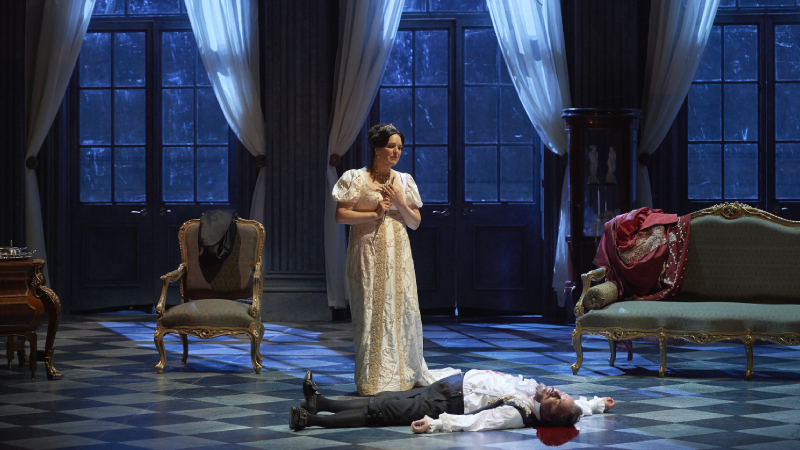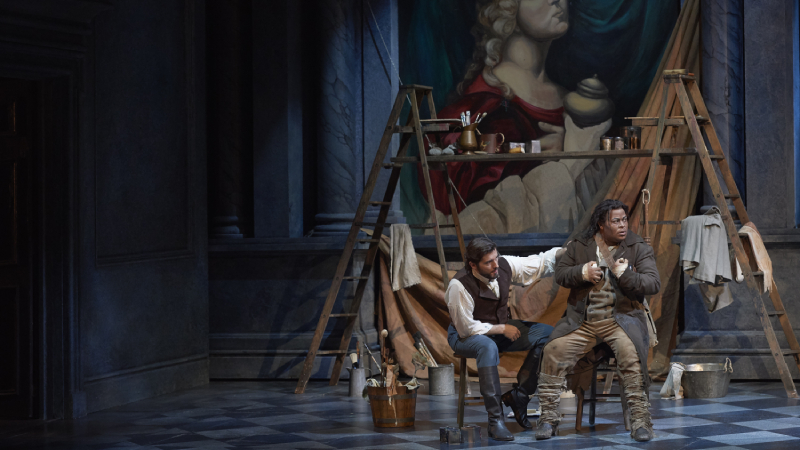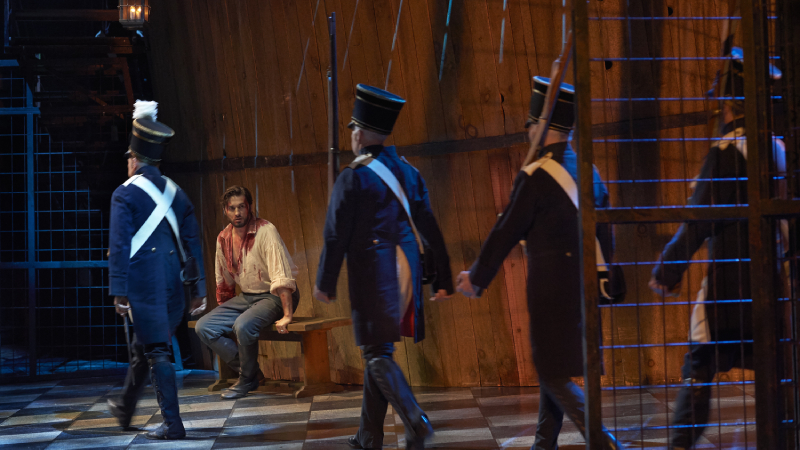-
10 Things to Know about TOSCA
By COC StaffPosted in 22/23 Season
The perfect finale for our first full season in three years, Giacomo Puccini’s Tosca is a can’t-miss classic. At once a daring political thriller and a tragic romance for the ages, our production promises a breathtaking night at the opera.
Before you head to the opera house, read on to learn the 10 things you should know about Tosca!
Capital O Opera
Tosca is one of the most beloved works in the opera repertoire, a stunning force of romantic and political drama with memorable, emotionally riveting music. Twists and turns abound in this story of a corrupt police chief’s obsession with an opera singer, delivering a timeless tale of lust, jealousy, and corruption.
A spectacular sight
Our signature production overflows with lush costumes and opulent sets, building a sumptuous vision of 19th-century Rome as the backdrop for Puccini’s unforgettable drama. Fans of last season’s La Traviata won’t want to miss the gorgeous gowns, fabulous furnishings, and a sparkling array of opera talent bringing it all to life.A COC favourite director
Scottish opera director Paul Curran returns to helm the Puccini classic! In a sparkling career with stops at major opera houses around the world—and even a two-year stint as an assistant to filmmaker Baz Luhrmann—Curran has delighted COC audiences with productions of Lady Macbeth of Mtsensk, Otello, and of course, Tosca. Reflecting on the show upon its premiere in 2008, Curran noted, “there are similar stories to Tosca in theatre and on film but nothing quite has the same effect as the melodic and dramatic invention of Puccini in the opera house. It never fails to amaze me.”
Puccini, master of emotions
Puccini’s mastery of stage composition is on full display in Tosca, blending catchy melodies with fast-moving narrative to create an opera of immense popular appeal. While some critics have dismissed the show’s heightened drama, the work continues to resonate with audiences, both new and familiar with opera, due to the sheer emotional power and dramatic impact that Puccini creates as a storyteller. His Tosca stands alongside classics like La Bohème and Madama Butterfly as some of the most successful operas ever written
Opera hit list
Tosca features some of Puccini’s most memorable music, producing a venerable opera hit list. While the score is notable for its through-composed structure—the music unfolding in an uninterrupted stream from beginning to end—it punctuates the drama with such major musical set pieces as Cavaradossi’s “E lucevan le stelle” (“And the stars were shining") and Tosca’s “Vissi d’arte” (“I lived for art”), two thrilling arias that have become some the most performed and celebrated opera music in the world.
Musical signposts
Puccini uses leitmotifs—short, recurring musical phrases used to represent specific characters or themes—to signal important connections for the audience. Scarpia’s leitmotif, for example, is as jagged and sinister as the man himself, contrasted dramatically by the bright woodwinds and expressive strings accompanying Tosca. This musical contrast builds dramatic tension and reinforces the clash of wills at the heart of the story.

Real time, real place
Set in 19th-century Rome during the Napoleonic Wars, Tosca features historically accurate dramatic and musical elements. In a story unfolding nearly in real-time, Puccini uses references to real military battles, city landmarks, and even the sounds of the city, incorporating church bells, cannon fire, and rifle shots into his score, expanding the musical fabric of the orchestra.
A turbulent premiere
Tosca premiered in Rome on January 14, 1900, during a period of intense social unrest for the city. The political instability swept up the premiere itself, as cast and crew received menacing letters from those objecting to an out-of-towner writing about Rome, and theatre management found itself receiving a bomb threat. Despite these obstacles, the opera had its premiere to great audience acclaim.
Certified fresh?
Throughout its history, Tosca's audience adoration has not always been matched by critical acclaim. A dark story, intense score, and flashy, crowd-pleasing moments have sparked its intense love by fans, and often inspired equal derision amidst critics—most famously being described by critic Joseph Kerman as "that shabby little shocker."
An unforgettable ending
Stop reading here if you hope to avoid spoilers! Tosca’s shocking climax offers a memorable finale to an operatic classic: pursued by the police after murdering Scarpia, Tosca evades her would-be captors, runs to a parapet, and leaps to her death, calling to Scarpia to meet her before God. As the curtain falls, audiences are left to mourn the two tragic lovers.
Puccini’s Tosca opens on Friday, May 5! Tickets now on sale.
Photos: Michael Cooper
